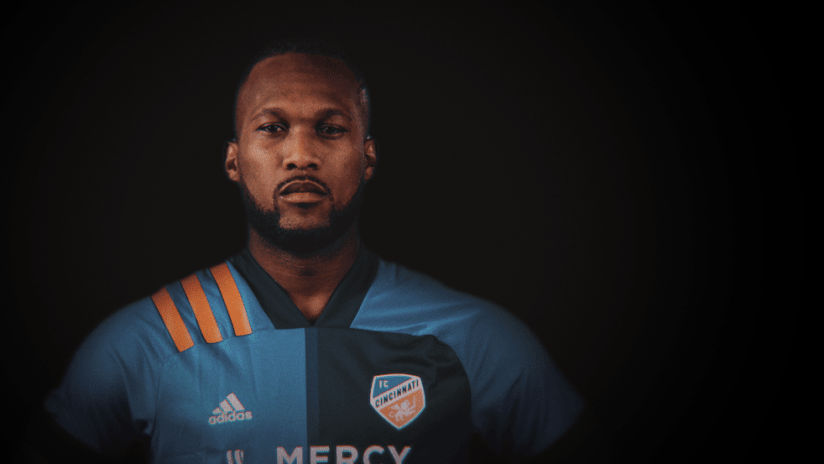A common refrain over the last few weeks since the murder of George Floyd has been Black players across MLS recalling their interactions with police officers.
The latest to speak out is FC Cincinnati center back Kendall Waston, who referenced an incident from The Queen City during an interview with Costa Rican outlet La Republica. Waston, who grew up and spent much of his career in Costa Rica, said he experienced a fearful encounter after being pulled over.
“One time after I was stopped, the police approached with a flashlight and was like ‘Do you have a gun? Do you have any drugs?’,” Waston explained. “I told him, ‘No.’ And in my mind, I thought ‘This is what happens in the movies.’ People don’t move their hands and that’s what I did.”
Only when Waston explained his status as a professional soccer player did the conversation switch tones. Now in his seventh MLS season, Waston has a combined 15 goals and four assists across 142 appearances with Cincinnati and the Vancouver Whitecaps.
"He looked at me and he said ‘What are you doing?’” Waston said. “And I said to him: ‘I’m coming back from playing.’ ‘Who do you play for, the university?’ I said: ‘I play for FC Cincinnati, the professional team,’ and he sees the crest. As soon as he sees it and I tell him that, you could see the change on his face and in how he spoke.”
The interaction was not only jarring but borderline foreign, as Waston said he’s not used to that intensity from police officers in his home country. The 32-year-old has made 41 appearances for Los Ticos, highlighted by a start at the 2018 FIFA World Cup in Russia.
Waston also delved into experiencing racism back home, then as a teenager in the capital city of San Jose. He was walking down the street and a woman crossed to the other side, another experience that Black MLS players have recalled in significant numbers.
“It wasn’t an insult, but more of a feeling of ‘Oh, they see me in this way. They feel threatened, or something like that,’” Waston said. “It was like when I would think ‘Do I have to change something about myself so that I’m not making others feel strange?’ Understanding this, I would ask my parents: ‘Why is this happening? What am I doing wrong?’”













